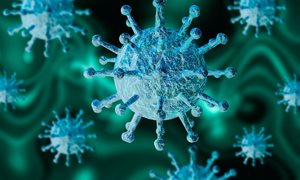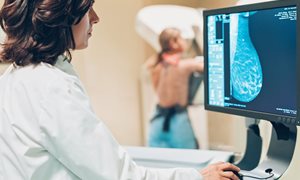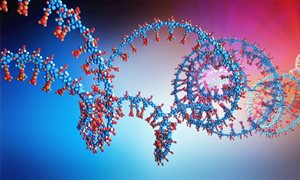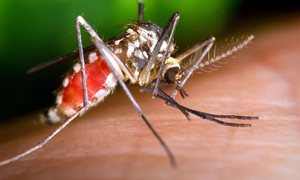
A new Northwestern University study with researchers from Radboudumc and University Utrecht is the first to explicitly address the gut microbiome as a pathway to understanding how environmental inequities could lead to health disparities.
Biological anthropologist Katherine Amato, assistant professor of anthropology at the Weinberg College of Arts and Sciences at Northwestern, is the study's lead author.
Amato says, despite a rich body of literature documenting environmental impacts on the microbiome, and the microbiome's impact on human health, the links between structural discrimination, altered environments, microbiome structure and health disparities have not been comprehensively outlined.
The new study calls for a better understanding of how structural discrimination that exposes minoritized populations to 'unhealthy' environments from altered diets, pollution, sanitation and lack of access to green space impacts the human gut microbiome, which in turn affects almost every aspect of human biology and health.
"Research has implicated the microbiome in most chronic diseases, and we know that there are disparities in most chronic diseases in which higher morbidity is observed in minoritized populations," Amato said.
Prior studies have demonstrated the impact of environmental inequality on health. For example, a 2020 study showed that children who are exposed to plants and dirt daily at school have higher microbial diversity and improved immune markers, likely because the exposure to microbes in these materials are transmitted to children's bodies. The pattern suggests that minoritized populations living in neighborhoods with little access to outdoor green space are more likely to have lower microbial diversity and associated health risks.
Among its many roles, the gut microbiome contributes to protection from pathogens, nutrition and metabolism, immune function, brain development and behavior. An altered gut microbiome can also have an impact on the gestational environment and the resulting health of the next generation.
Amato's study builds on prior research that shows the environment's role may be stronger than genetics in shaping the human microbiome, and that changes to the composition and function of the microbiome are most flexible in early life.According to Amato, more empirical and interdisciplinary research is needed to facilitate epidemiological approaches that can tease apart multiple interacting determinants of health and help isolate the factors leading to chronic disease.
An ultimate goal of the research is to be able to deliver interventions that address environmental issues and individualized therapies to restore and improve microbiome health.
"Demonstrating the potential importance of these therapies in combatting health inequities could lead to transformative policy interventions that strive for universal access to emerging health technologies, and to healthcare more generally," Amato said.
Paper in Proceedings of the National Academy of Sciences (PNAS): The human gut microbiome and health inequities - Katherine R. Amatoa, Marie-Claire Arrieta, Meghan B. Azad, Michael T. Bailey, Josiane L. Broussard, Carlijn E. Bruggeling, Erika C. Claudj, Elizabeth K. Costello, Emily R. Davenport, Bas E. Dutilh, Holly A. Swain Ewald, Paul Ewald, Erin C. Hanlon, Wrenetha Julion, Ali Keshavarzian, Corinne F. Maurice, Gregory E. Miller, Geoffrey A. Preidis, Laure Segurel, Burton Singer, Sathish Subramanian, Liping Zhao and Christopher W. Kuzawa
-
Want to know more about these subjects? Click on the buttons below for more news.
Gastroenterology and HepatologyInternal MedicineMedical Microbiology Pathology News homepage news & media
More information
Pieter Lomans

persvoorlichter
Related news items

Epigenetics: Immunization is passed on to offspring Mice transmit adaptations to infections to next generations
19 October 2021 Does an infection affect the immunization of subsequent generations? It does, according to research now published in Nature Immunology. read more
More variants TLR7 gene found in young healthy men with severe Covid-19 Screening and accelerated vaccination for TLR7 immunodeficiency
3 August 2021 Spanish-Dutch research has revealed two new mutations in the TLR7 gene in healthy young men who became seriously ill with severe Covid-19. read more
ScreenPoint Medical raises $28 million for further development Series C funding led by Insight Partners
2 August 2021 ScreenPoint Medical has raised $28 million in a Series C financing. ScreenPoint Medical is a spin-off of the Radboudumc. read more
Next Generation cytogenetics is on its way Does Optical Genome Mapping turn cytogenetics upside down?
7 July 2021 Dutch-French research shows that Optical Genome Mapping (OGM) detects abnormalities in chromosomes and DNA very quickly, effectively and accurately. read more
European research project raises hopes in fight against rare diseases Solve-RD successfully established an innovative approach to jointly re-analyze genomic and phenotypic data from unsolved rare disease patients
1 June 2021 For the first time in Europe hundreds of rare disease experts team up to actively share and jointly analyze existing data from unsolved rare disease patients. read more
